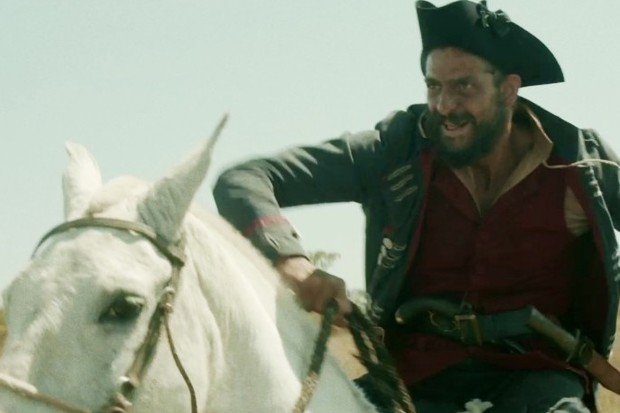Joaquim: The birth of a Brazilian hero
- BERLIN 2017: Marcelo Gomes explores the life and times of an icon of the Brazilian independence movement, set against the backdrop of the gold rush in the era of Portuguese rule

A co-production between Portugal and Brazil, Marcelo Gomes’s Joaquim [+see also:
trailer
film profile], screening in competition at the Berlin International Film Festival, invites us to step into a place and time that has never before been explored on screen with such impressive accuracy and depth. To tell us the story of Joaquim José da Silva Xavier (Julio Machado), commonly known as “Tiradentes”, before he became Brazil’s national hero and an icon of the independence movement, Gomes spirits us off to the Brazilian state of Minas Gerais, back in the eighteenth century when the country was still a Portuguese colony. The colonial administration (those “uniformed thieves”) ruled with an almost medieval inhumanity, keen to preserve the inequalities that cut across a society where an ongoing process of cultural fusion was offset by a meticulously maintained segregation. In the hope of replenishing the royal coffers, the regime sought to reinforce its oppressive power by exploiting the grit and sweat of the gold prospectors.
The film benefits from painstakingly-researched sets, wardrobe (servicing the whole spectrum from Portuguese officials to the indigenous Indians, not to mention the slaves and African rebels) and lighting and, above all, offers us an insight into everyday life in eighteenth-century Brazil. The most memorable aspect of this film, however, is the way that Gomes manages to make us feel almost physically immersed in this world. Unlike most historical films, which keep a cool distance from the period they evoke, Joaquim gives us a ground-level view, getting right up close to the characters: their bodies, their movements, even their scent — for example in the delousing scene (parasites are a recurring motif) and the moment where Joaquim is shaved by his beloved, the slave Preta (whose name literally means “Blackie”) played by Isabél Zuaa. This sense of closeness is palpable also in the appalling scene where Preta’s owner, having taken a dim view of Joaquim’s proposal to buy her, claims his droit du seigneur, driving her to commit murder and go on the run.
As Joaquim tells his companion in his quest for gold nuggets (which he hopes will come in useful as he searches for the fugitive Preta, with whom he is hopelessly in love), the real situation in the country “is not like it is in your library”. Its severity is physical, and it cuts deep. This is a world where tiny children are denied a drop of soup for being indigenous, and where those who betray the Portuguese crown are decapitated and dismembered. Violence is an inescapable part of the social and human dynamics that Joaquim comes to experience more and more directly, and this violence weighs him down until he finally makes a decision, expressed in a few words repeated over and over again, as if this future national hero were gathering his strength: “This has to end, this has to end…” Because Joaquim has a conviction, lodged deep in his very soul, that there is a chance to bring about the country of which Gomes offers us a glimpse: a world in which the black slave and the Indian sing in unison, both facing the same horizon.
Joaquim was co-produced by Brazil (REC Produtores Associados Ltda.) and Portugal (Ukbar Filmes). International sales rights have been acquired by Films Boutique.
(Translated from French)
Did you enjoy reading this article? Please subscribe to our newsletter to receive more stories like this directly in your inbox.

























